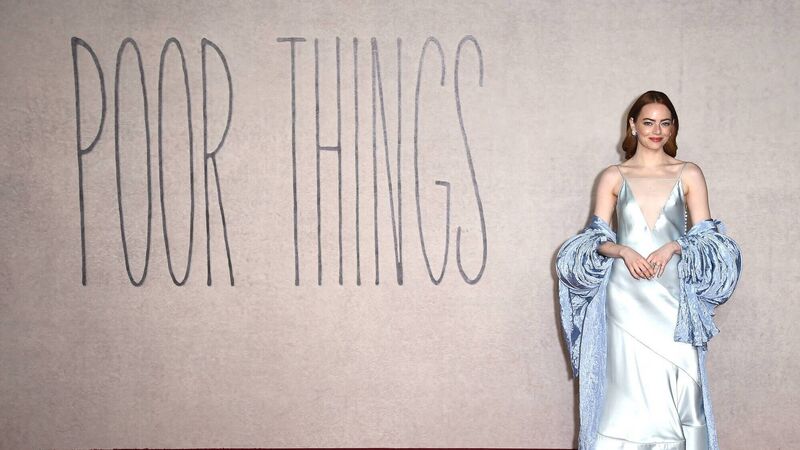'Poor Things': Why Bella Baxter is Emma Stone's favourite character ever

Emma Stone at a screening of 'Poor Things' at London's Barbican Centre. Picture: Eamonn M McCormack
Try from €1.50 / week
SUBSCRIBEEmma Stone is being tipped to win her second and possibly her third Oscar this awards season.
The US star looks set to feature in the best actress and best picture categories at the 96th Academy Awards for her roles as star and producer of Poor Things.
Already a subscriber? Sign in
You have reached your article limit.
Annual €130 €80
Best value
Monthly €12€6 / month
Introductory offers for new customers. Annual billed once for first year. Renews at €130. Monthly initial discount (first 3 months) billed monthly, then €12 a month. Ts&Cs apply.
CONNECT WITH US TODAY
Be the first to know the latest news and updates
Newsletter
Keep up with stories of the day with our lunchtime news wrap and important breaking news alerts.

Select your favourite newsletters and get the best of Irish Examiner delivered to your inbox
Tuesday, February 10, 2026 - 9:00 PM
Wednesday, February 11, 2026 - 6:00 PM
Wednesday, February 11, 2026 - 4:00 PM
© Examiner Echo Group Limited